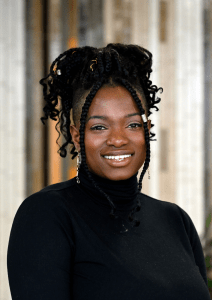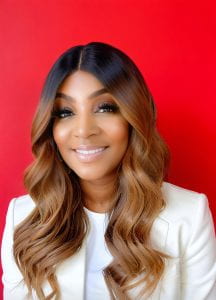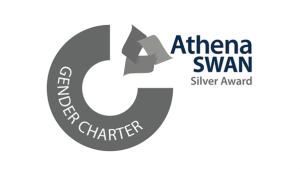October marks Black History Month, a month to commemorate Black History and celebrate Black contributions to society.
This Black History Month’s theme is ‘Saluting Our Sisters’. This seeks to highlight the crucial role that Black women have played in shaping history, igniting change, and building communities. In the past, Black History Month has primarily focused on histories of oppression, pain, and suffering. Now, there is a greater push towards using this month as a time to celebrate positive, often hidden, stories; showcasing Black success and inspiration more than anything else.
In recognition of this theme, and to help celebrate Black History Month, we wanted to feature local pioneering women who have made remarkable contributions to their field.
The EDI Team interviewed Keri Andriana, CEO and Founder at Amschela Ltd, and Lara Lalemi, Chemistry Postgraduate Student at Bristol and CEO and Founder of Creative Tuition Collective on their journeys, inspirations, and what ‘Saluting our Sisters’ means to them this Black History Month.
Keri Andriana – Amschela Ltd
Tell us a bit about yourself and what you do:
I am a 2004 Law Alumni of the University of Bristol. I am also the CEO/Founder of PETA Approved sustainable designer handbag brand Amschela. I live in Bristol, although the brand is an international brand. I design and create affordable luxury handbags for the ordinary woman without exorbitant pricing generally found in high-end luxury products. I aim to help fill the gap of many women who fill excluded in the luxury market. My ethos is that everyone deserves to feel special. I am a champion of giving back and where I can, I use my brand to provide opportunities to young people seeking access to the industry.
What/who inspires you in your work?
People that go out on a limb to achieve great things, especially when doubted. For example, the late Kate Spade was a great influence of mine as a designer in that she, too, created her brand with very little handbag experience and cultivated an amazing global handbag brand from scratch. I love her go-getter attitude. My grandfather, the late Dr Roy Hackett MBE is my overall inspiration in that he was not afraid to stand up for equality and justice and indeed co-founded the Bristol Bus Boycott 1963 that led to the enactment of the Race Relations Act 1965, now the Equality Bill 2010.
What does the theme ‘Saluting Our Sisters’ mean to you?
‘Saluting Our Sisters’ means recognising and respecting the contributions and achievements of women in our society. It means acknowledging the struggles and challenges they have faced, and continue to face, in a world that has often been unfair and discriminatory towards them. Saluting our sisters means standing in solidarity with women and working towards a more equitable and just society for all. It means celebrating the diversity and strength of women and recognising that their experiences and perspectives are valuable and necessary for our collective progress. Ultimately, saluting our sisters means recognising the inherent worth and dignity of every woman, and treating them with the respect and equality they deserve.
If you could give a piece of advice to anyone looking towards the same path as you, what would it be?
My advice would be to always be your authentic self, be brave in your quest to fulfil your dream and be prepared to make sacrifices to get to your required goal. Stay consistent, think outside the box and never be afraid of failure, use it as a learning opportunity to do better. Most importantly, have fun and enjoy the entrepreneurship journey.

Lara Lalemi – Creative Tuition Collective
Tell us a bit about yourself and what you do:
I have just completed a PhD in Aerosol Science at the University of Bristol. I’ve been at the University for nine years now and have just taken on the role as the EDI officer for the Biochemistry department. During my PhD, I set up an organization called the Creative Tuition Collective which offers year 7-9 students free after school club experiments, projects, tuition and wellbeing coping mechanisms. I believe in helping young people to succeed by creating better opportunities, particularly those from lower income or marginalised backgrounds. Growing up, I saw how circumstances in which you’re born into can limit where you grow to, and I want to break down those barriers through my work.
What/who inspires you in your work?
It’s various people, of course! When I was doing my PhD – they say it takes a village to raise a child, but it also takes a village to raise a PhD student!
My family, my parents and brother are massive inspirations to me; because I was afforded not only a loving support system, but also tuition support and opportunities to do dancing and team sports which helped build my confidence and teamwork skills. My family supported me along the way and helped to inspire my work, because of that, I want to give that back to people. I also have inspirational mentors within the University such as Dr Caroline McKinnon, Professor Nazira Karodia and Donna Speed. I’m also driven by inspirational historical figures such as Marsha P Johnson, and James Baldwin who coined one of my favourite quotes; ‘Not Everything That Is Faced Can Be Changed; But Nothing Can Be Changed Until It Is Faced.’
What does the theme ‘Saluting Our Sisters’ mean to you?
This has a three-fold meaning for me. Firstly, it’s about saluting the sisters on the shoulders of which we stand; the people who had to endure racism, sexism, misogyny, and homophobia to allow people like me to walk more freely in the spaces that they couldn’t inhabit. People like me are still the exception and not the rule, but we can still move freely! Secondly, ‘Saluting Our Sisters’ means saluting the people that are standing beside you and doing the work, day-to -day. Everyday we’re still pushing through barriers and ceilings; powering through and excelling at what you do every day is important. Finally, I want to salute the sisters that are to come, the sisters where we put the drawbridge down and we ask them to climb onto our shoulders. It’s affirming that we are here existing within an ecosystem of people that are empowering each other.
If you could give a piece of advice to anyone looking towards the same path as you, what would it be?
The first one for me is always to find your why. Why am I doing what I am doing? Who is it for? A lot of people feel lost at this age, and that’s okay, we’re still growing and evolving. By feeling so resolute with my why – that no child’s ability to succeed and receive a good education is inhibited by the circumstances in which they are born – I feel as long as whatever I do aligns with this, I know is a step in the right direction in establishing my vision.
In the world of academia, we’re extremely focused on comparison and feel this pressure to bring something impressive to the table. If you try to be and do everything to prove your worth, you’re going to exhaust yourself and feel inferior anyway which can lead to a negative feedback loop. It’s important to recognise that you have a specific blend of strengths and skills which no one else has. Write these down and hang them up where you can see them everyday, this will help break that loop.
We are all beautifully unique, perfectly imperfect and its time we celebrate that!





